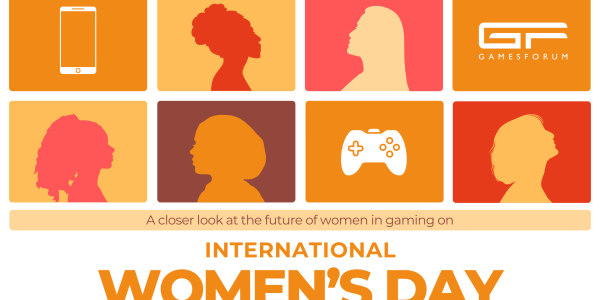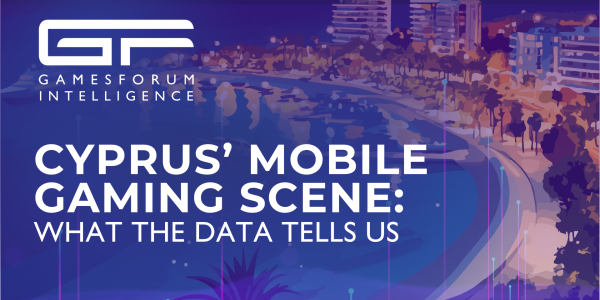Kelly Kang on Turning Ads into Engagement: Pixel United’s Approach to Rewarded Monetization

Ad monetization in gaming is no longer just about filling screen space with ads—it’s about strategy, balance, and evolving with player expectations. Kelly Kang, Pixel United's Snr Director, Ad Monetization & Partnerships, has navigated the shifting landscape of mobile gaming, finding ways to maximize revenue without compromising user experience. From the rise of rewarded ads to the challenges of privacy regulations, she shares insights on what’s working, what’s changing, and where the industry is headed next.
Can you tell us about your journey in ad monetization? What key experiences or decisions led you to your current role at Pixel United?
My journey into ad monetization began with a curiosity about the intersection of technology and user behavior with ads. After gaining experience in the field, I became intrigued by the complexities of mobile ad monetization. Through a series of roles at different companies, I’ve gained a comprehensive understanding of the mobile gaming landscape and the intricacies of effective ad monetization. My involvement in developing a successful ad monetization strategy for popular mobile games was a turning point in my career. This experience taught me the importance of strategic thinking, effective collaboration, and driving results in a complex environment. It also reinforced my belief in the potential of ad monetization to support the growth of the mobile gaming industry.
What are some of the most significant trends in ad monetization that you’ve observed recently, and how do you see these evolving in the next few years
Ad Monetization is evolving towards a more user-centric approach, prioritizing seamless ad integration to avoid interruptions and prevent ad fatigue. Native and rewarded ads are becoming more prevalent, blending seamlessly into gameplay. Additionally, personalized ads and frequency management are being refined to enhance user engagement.
Data privacy is a growing concern, driven by regulations like GDPR and CCPA. Advertisers are responding by adopting more privacy-friendly solutions, such as contextual targeting and non-intrusive data collection methods. This shift ensures compliance while maintaining ad performance.
Developers are exploring alternative revenue streams beyond traditional ads. Influencer marketing and subscription models offer new opportunities, but require additional investment and resources.
Programmatic advertising continues to advance with AI and machine learning, enabling real-time optimization of ad placements for better targeting and efficiency.
What are the biggest challenges you face in ad monetization and partnerships at Pixel United, and how do you navigate them?
One of the biggest challenges in Ad Monetization and Partnerships at Pixel United is balancing user experience with revenue generation. Ads that are too intrusive can negatively impact user retention, while a lack of effective monetization can limit growth. We navigate this by focusing on ad formats that integrate seamlessly with gameplay, like rewarded ads, and by using data-driven insights to optimize ad frequency and placement for minimal disruption. Lastly, finding the right partners who align with our goals can be difficult. We mitigate this by carefully vetting partners based on their track record and ability to deliver value in line with our user base and strategic objectives.
Pixel United has a diverse portfolio of games. How do different game genres or specific titles influence your ad monetization strategies?
At Pixel United, our ad Monetization strategies are carefully tailored to suit the unique characteristics of each game. For casual games, where players are accustomed to ads, we prioritize rewarded ads and offerwall that integrate seamlessly into the gameplay. In contrast, strategy or RPG games with longer sessions allow for more immersive ad placements, such as native ads and in-game offers.
Player demographics also play a significant role in our monetization decisions. By closely analyzing player behavior and the game’s lifecycle, we can refine our ad strategies to maximize revenue without compromising the user experience. This ensures that our monetization efforts are always aligned with the specific needs and preferences of our player base.
How do you balance the need for ad revenue with maintaining a positive user experience in your games?
My primary focus is on balancing ad revenue with a positive user experience. To Achieve this, we prioritize non-intrusive ad formats like rewarded ads and offerwall that provide value to players without disrupting gameplay. This approach is a win-win situation where players willingly engage with ads to unlock rewards.
I also employ ad frequency management to prevent ad fatigue. By analyzing player behavior and ad engagement data, I carefully adjust the frequency and timing of ads to minimize disruptions while maximizing revenue.
Furthermore, I actively seek and incorporate player feedback to continuously refine ad strategies. This ensures that I maintain a delicate balance between monetization and a seamless, enjoyable gaming experience.
What do you look for in potential partners when it comes to ad monetization, and how do you ensure these partnerships align with Pixel United’s goals and values?
When evaluating potential Ad Monetization partners, we prioritize those who offer innovative, user-friendly ad solutions that seamlessly integrate into our games. We seek partners with a strong track record of delivering high-quality ads that enhance player experience. Data privacy and compliance with regulations are also crucial factors, as we value user trust and transparency. Robust analytics and optimization tools are essential for maximizing revenue while maintaining a positive user experience. Ultimately, we aim to partner with companies that share our commitment to player experience and long-term goals.
What is your vision for the future of ad monetization at Pixel United? Are there any new technologies or approaches you’re excited to explore
My vision for Ad Monetization at Pixel United involves hanessing innovative technologies to create a more personalized and seamless experience for our players. I’m particularly excited about advancements in programmatic advertising, powered by AI and machine learning. These technologies enable real-time optimization of ad placements, delivering more relevant and engaging ads while improving targeting and efficiency.
I also envision dynamic ad formats that adapt to individual player behavior and preferences, creating a more seamless gaming experience. Privacy-first approaches, such as contextual targeting, will become increasingly important as data privacy regulations evolve.
Ultimately, my goal is to continue innovating in ways that drive both revenue growth and player satisfaction, ensuring that ad monetization at Pixel United remains sustainable and user-friendly in the face of emerging technologies.











